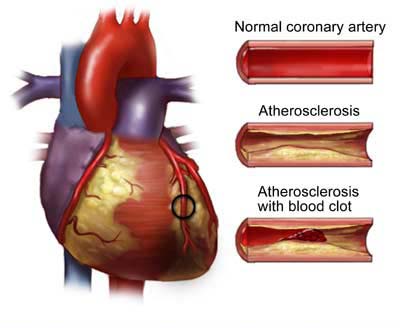Study: Obese Kids' Arteries could be as clogged as Old People’s Arteries
 A research presented at the American Heart Association's annual scientific sessions in New Orleans, articulated that an obese child’s arteries could be just as clogged as a middle aged person.
A research presented at the American Heart Association's annual scientific sessions in New Orleans, articulated that an obese child’s arteries could be just as clogged as a middle aged person.
Dr. Geetha Raghuveer of the University of Missouri Kansas City School of Medicine and Children's Mercy Hospital, who led the study said, "This is an alarming finding," adding that this buildup could put children at a risk of a heart attack or stroke as early as 30.
In the study the researchers used ultrasound to measure the thickness of the inner walls of the carotid arteries, which are two large blood vessels in the neck that supply the brain with blood. Carotid artery intima-media thickness (CIMT) is a measure of atherosclerosis, or the fatty build-up within the arteries that can eventually choke the vessels, leading to a heart attack or stroke.
70 obese children aged 6-19 were tested and most of the children were white, and about half were male and fifty-seven % had a body-mass index (BMI) above the 95th percentile for their age.
They found that the state of their arteries was more typical of a 45 year old and they had high levels of low-density lipoprotein (LDL), known as "bad cholesterol," low levels of high-density lipoprotein (HDL), known as the "good cholesterol," and elevated levels of a type of fat found in the blood called triglycerides.
Dr. Carl Lavie, medical director of cardiac rehabilitation and prevention director of the Stress Testing Laboratory at Ochsner Heart and Vascular Institute in New Orleans said, "Generally kids have much smaller CIMT than do adults, and this increases with age. In adults, CIMT has correlated with a risk of heart attack and stroke; so generally, it is well-recognized that having a thinner CIMT is preferable."
Raghuveer said by incorporating important lifestyle changes like losing weight and exercising more the children could reduce the artery build up.
Dr. Catherine McNeal, an associate professor of internal medicine and an assistant professor of pediatrics at Texas A&M Health Science Center College of Medicine and a pediatrician at Scott & White Hospital in Temple, said, "it is clear that obesity is a risk factor for the development of premature cardiovascular disease in youth."
"Certainly, there is considerable concern that there is an obesity epidemic in the U.S., including in our children who are becoming more sedentary, watching more and more TV, playing video games and on the computer as opposed to physical activity outside," Lavie said. "In fact, there is concern that if the current obesity epidemic continues [and it actually seems to be worsening], we will soon see an abrupt end to the steady improvement in life expectancy in the U.S."